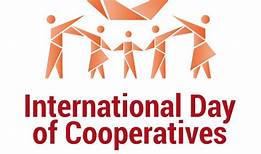The State government has been giving priority to the welfare of fishermen, said Stambadri Urban Development Authority (SUDA) Chairman, Bachu Vijay Kumar.
The Chairman, along with Mayor P Neeraja, released fishlings, supplied free of cost to fishermen by the government, into Lakaram Tank here on Wednesday. Speaking on the occasion, he said the TRS government was promoting caste-based professions on a large scale in the State.
Besides agriculture, Chief Minister K Chandrashekhar Rao is keen on developing the allied sectors too. The promotion of aquaculture by the government with the free supply of fish seed has been reaping rich benefits to the fishermen community all over Telangana, Vijay Kumar noted.
He appealed to the fishermen to make use of the government schemes and grow economically. Local corporator and senior TRS leader Karnati Krishna and others were also present.
At another programme, Vijay Kumar distributed essential commodities under the aegis of a charitable organisation Gospel for Tribal Social Service Society (GTSSS) in Khammam.
Essential items like rice, sugar, cooking oil, salt, wheat flour, multi-vitamin tablets, vitamin C tablets and sanitisers were given to around 200 poor families in the 35th and 36th municipal Divisions.
The SUDA Chairman appreciated the founder of GTSSS, Bishop M Jacob for helping the needy who were affected due to Covid-19 crisis. Corporator Pasumarthi Rammohan, GTSSS representatives Y Srivenu, V John Reddy, N John, G Murali Krishna Reddy and others were present.
About GTSSS:
Jacob Marineni, a native Indian brother, founded GTSSS. GTSSS is committed to bringing the hope of the Gospel of the Lord Jesus Christ and His love to a suffering and dying humanity through practical means. "The Gospel in one hand and bread in the other," says GTSSS.
It is involved in a variety of ministerial activities such as church planting, Bible college operation, educating and housing orphans and handicapped children, providing a home for the aged and poorest, providing medical care for lepers, conducting free medical clinics etc.as the Lord opens doors.











